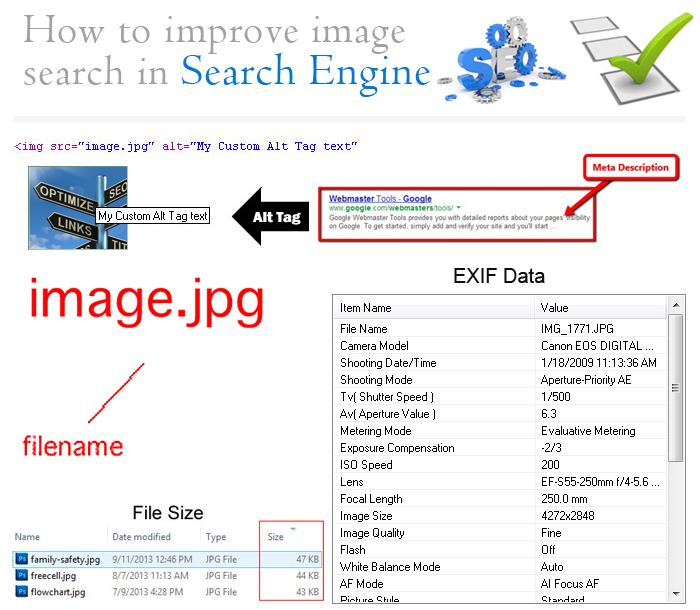
As far as images are concerned on search engine results, it is a true that images do play important role by generating heavy traffic from image-based search engine results. It is true that Google image search only gets a half a percent of Google’s overall traffic; however, due to blended search results, images actually get a heavy traffic than that half a percent. If you want to have more image-based traffic, you must learn how to optimize your images to score some of this traffic on the search engine results.
Fortunately, in this blog you will get to know how you can make your images user friendly. Once you are done with what to do and how to go about it, the work becomes easier than what you think.
Alt Tags
Since search engines are unable to read images, so you can use alt tags in order to describe your image. By adding some tags to your image and your image will speak for you. For instance, if you have an image of playing baby in rain, your alt tag should read something like:
Alt=”Playing Baby covered by Rain”
In a nutshell, it is the tag that is used by the search engines to understand images. Three main points that should be kept in mind while creating good alt tags are as follows:
- Image requires a proper description without stuffing of relevant keywords.
- The image should be keyword rich.
- It should be short and precise.
Lengthy Descriptions
Alike alt tag, there is also a long description attribute. Initially, it was created to help understanding the visually impaired images. For instance, above mentioned example of playing baby during rain, there are many more words that can be used to describe it than that what is used in above example.
From color to expression of the child to how the rain appears, there are a lot of elements to the image that you can use in the long description. In order to describe the image, you may need to include the text on a page that explains what the image is all about.
File Name
It is essential to pick a descriptive file name before uploading the image. Since there are billions of images out there and you want a preferably a file name that is not a generic image file like “playingbaby.jpg”. Instead you want to use something that is bit more descriptive like “playingbabyrain.jpg”.
File Size
When it comes to the size of the file, there are two main aspects to an image size file. One is dimensions to be as big as possible and the other one is how much storage space the image needs. Through Sketch program, you can adjust the dimensions while keeping the storage size small by using compression.
EXIF Data
The full form of EXIF is exchangeable image file format which permits you to add various types of Meta data to the actual image file. It means that it will be embedded in the image itself, so wherever it goes, the Meta data will follow it.
EXIF data is more detailed than the alt tag and long description and carries data such as:
- When the image was taken, whether the flash was on or off.
- What type of camera the image was taken with.
- What was the aperture speed that used?
- Time and date the image was taken.
- The height and width of the image.
Above are some of the facts about EXIF data, though, there are also more facts that are impossible to share here
Wrapping up
Through this blog, you will understand how to improve image search in search engine result. Through alt tag and image file names you can optimize the image but EXIF data is an advanced tactics that may not have a huge impact on your image ranking but if you use it you can definitely get a boost in the ranking.






